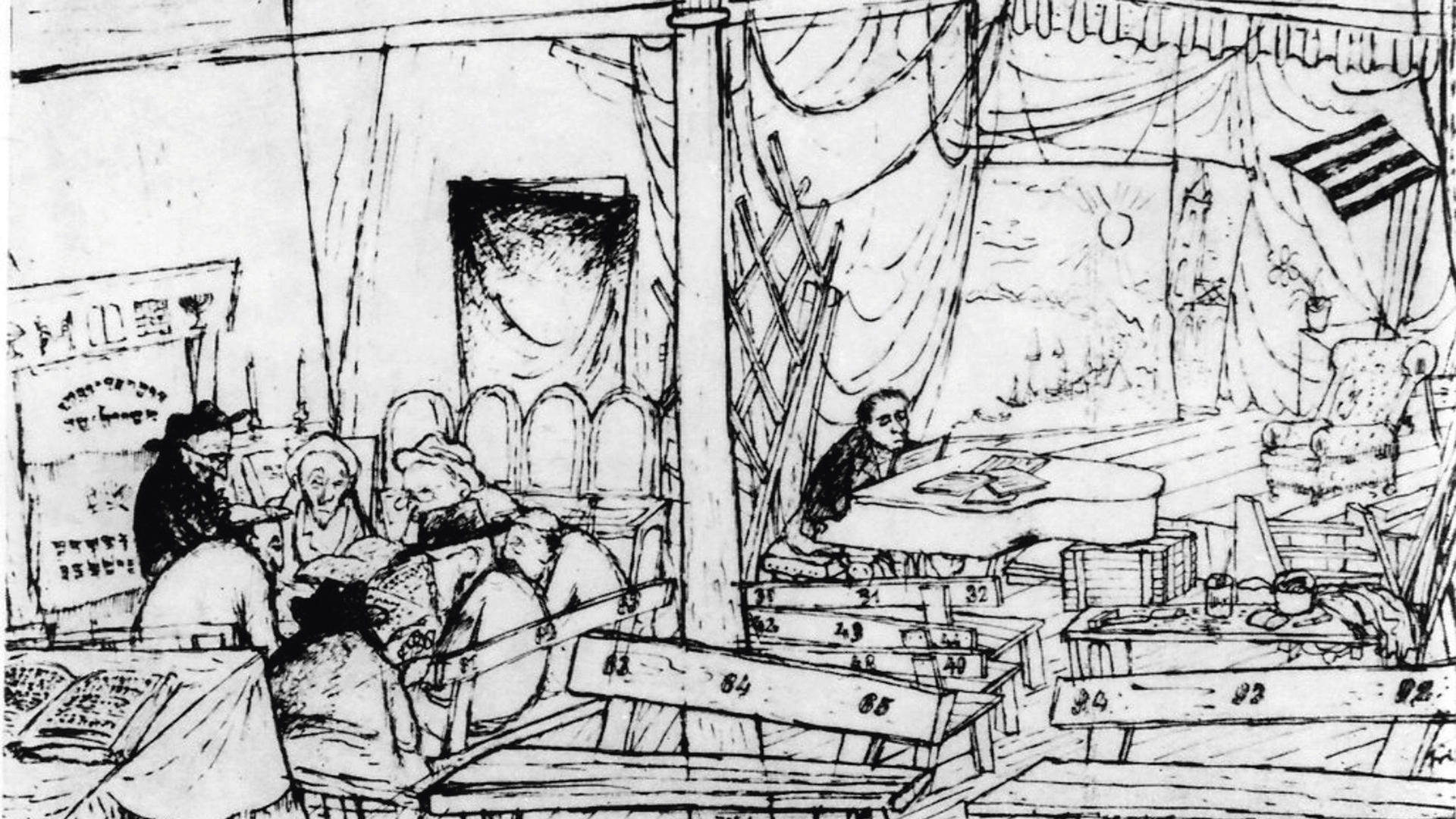Everyone agreed the weather was perfect. It was cold; not the crisp, drinking hot chocolate type, the unpleasant, damp sort. A stubborn mist framed empty buildings – the city of London sleeps on Sundays.
“Enjoy,” the steward smiled at me as I took my place in the bowels of the Barbican. It seemed an odd thing to say to an audience about to watch a screening of The Music of Terezín, a 1993 documentary by Simon Broughton about compositions and performances made by prisoners at the Czech ghetto, which was used as a holding pen before detainees were murdered at Auschwitz and elsewhere.
But, as Broughton said in his introduction to the BBC Symphony Orchestra’s Total Immersion: Music for the End of Time – a day-long programme of events dedicated to art created in camps of Nazi-occupied Europe – as well as reflecting on humanity’s darkest failings we should also celebrate its extraordinary achievements.
Many renowned Jewish musicians, academics and artists were sent to Terezín (Theresienstadt) and, despite malnutrition, exhaustion and the constant threat of ‘transports’ – when large groups were taken away to concentration camps – a rich cultural life emerged. Smaller instruments such as violins were smuggled into the ghetto and an upright piano was discovered in a disused house.
Before he was killed, Czech composer-conductor Rafael Schächter organised 16 performances of Verdi’s Requiem, teaching dozens of prisoners the music from a single score and accompanied by the piano. The Nazis used the concerts as a smokescreen to cover what was really happening there: when the Red Cross visited in 1944, delegates were treated to a performance of the requiem.
Viktor Ullmann had studied composition with Schoenberg and was developing his musical career in Prague, having left Germany when Hitler came to power. When he was detained in Terezín, Ullmann expressed defiance through music, composing and performing, as well as organising concerts. These used whatever resources were at hand – Beethoven was arranged for violin and accordion, for example.









